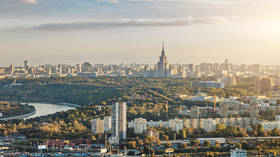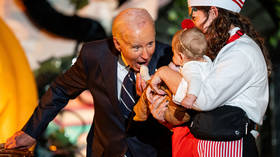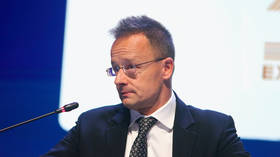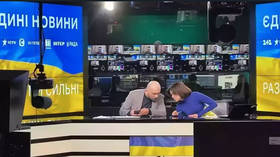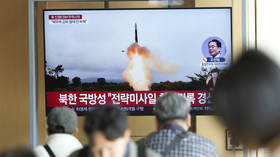Bloomberg outlines how Russia has shrugged off sanctions
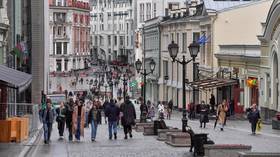
Key sectors of the Russian economy have adapted to sanctions or completely recovered from them, as the country shows a greater level of resilience than Western governments had expected, Bloomberg reported on Thursday.
Industries ranging from manufacturing and airlines to banking have found ways to adjust to sanctions "aimed at tanking the economy," boosted by soaring consumer demand and solid government support, the news agency noted.
The banking sector has emerged as one of the "starkest" examples of adapting to restrictions imposed since the start of Russia’s military operation in Ukraine. Last year, Western penalties cut most Russian banks from the international financial messaging system SWIFT. A number of these lenders are also subject to blocking sanctions, which prevent international financial institutions from cooperating with them.
However, Russia's largest state-owned lender Sber, along with other major banks, are set to reap record profits this year.
"Most likely, this year will indeed be the most successful in history for us," said Sber CEO Herman Gref, who has been sanctioned by the US, the EU and the UK.
The total profit of Russia's banking sector for the first nine months of the year may reach more than 3 trillion rubles ($33 billion) in 2023, beating the previous full-year record. The figure is three times higher than the central bank initially expected, according to Valery Piven, managing director of the Russian rating agency ACRA.
Moscow's revenues from oil and gas surged to their highest level in 18 months, reaching $17.7 billion last month, as Russia rerouted a bulk of its trade flows eastwards.
The domestic car market, which was "seemingly dead" after a mass exodus of Western brands, is now rebounding to pre-sanctions levels as Russia has been able to find new sources of imports or even substitute them completely, according to Bloomberg.
"Russian business is managing to apply very non-standard solutions. We don't yet see any severe deficit," said Stanislav Murashov, an economist at Raiffeisenbank in Moscow.
After being banned from many Western routes, Russian airlines have increased domestic travel substantially. International air travel is also "intensively developing," with an almost 30% rise in passenger traffic between January and September this year compared to the same period in 2022, according to Russia's Transport Ministry. Russia has air links with 37 countries and 59 foreign carriers that provide services, the ministry told Bloomberg.
"Russia's economy likely reached pre-war levels at the start of the fourth quarter in 2023, defying early expectations," Bloomberg's Alex Isakov said.
"The drivers of this recovery were favorable energy prices, which provide Russia with a stream of oil and gas revenue, COVID-scale fiscal impulse that the government delivered through a boost in military spending, and loose credit conditions which saw the expansion of retail and corporate loan portfolios by around 20% year-on-year," he added.
Russia's economic growth accelerated to 5.5% in the third quarter from 4.9% in the previous three months, the fastest pace in more than a decade, figures released on Wednesday by the Federal Statistics Service showed.
For more stories on economy & finance visit RT's business section
